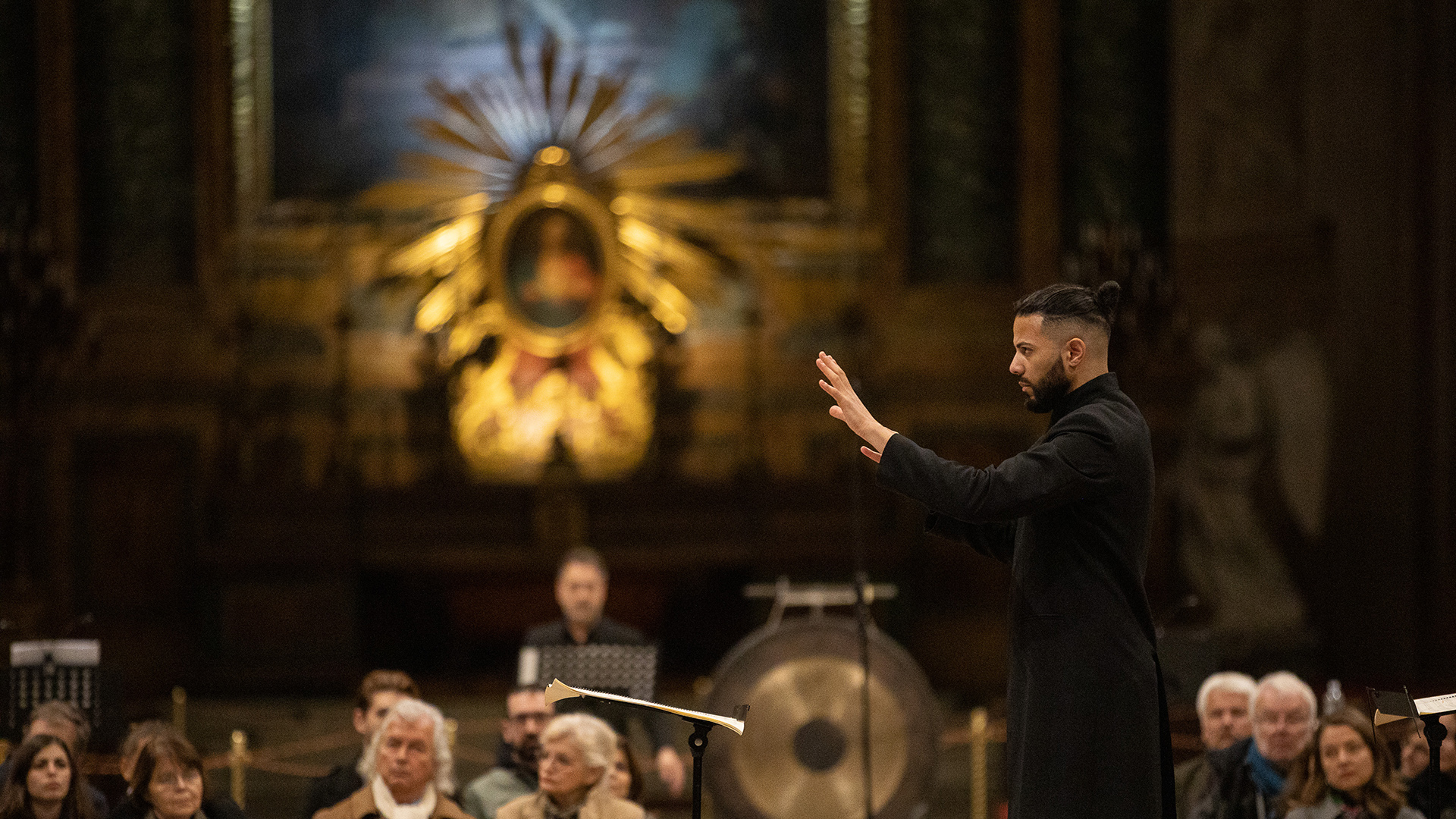
Composer-in-residence Samy Moussa started composing already at the age of 12
This season’s composer-in-residence of the Helsinki Philharmonic Orchestra, Samy Moussa, hails from Canada but currently resides in Germany. He first visited Finland at the age of 20 as a composition student at the Porvoo Suvisoitto composition course.
"I was lucky to participate in the course as I was the only non-Finnish participant that year," Moussa reminisces about the summer from which he has many memories. "I had many interesting discussions with the now-deceased Jouni Kaipainen, whom I really liked. And of course, I got to know people like Magnus Lindberg, Kaija Saariaho, and Oliver Knussen."
It took nearly 20 years after his first visit for Moussa to return to Finland, this time as the composer-in-residence of the HPO. “It’s great to be back in Finland!"
Composer Since Age 12
The tradition of classical music in Moussa's home country, Canada, is still young. "Classical music is not valued in Canada as much as it is in places like Finland, which I understood during my teenage years. That’s why I realized that to pursue my dream of achieving the highest level in composition, I needed to move away from there," says Moussa, who has lived in Germany for 18 years now. "Of course, Canada has high-quality orchestras, but they are so few that it's very difficult to build a successful career."
Moussa began his music studies on the piano. Eventually, he picked up the clarinet and ended up playing a wide variety of other wind instruments. "The bassoon is the only woodwind instrument I don't know how to play and have never tried. And of course, It is the one I want to play now!" Besides woodwinds,
Moussa started composing at the age of 12 and conducting orchestras at 14. "I studied conducting throughout my teenage years, but when I started to be professional musician, I needed to focus on composing because it is a skill that requires early specialization. I don’t mean that conducting is easy, but sometimes it takes a lifetime for a composer to reach their full potential."
These days, Moussa is increasingly conducting orchestras as well. He made his debut with the Helsinki Philharmonic Orchestra in Daníel Bjarnason's piece From Space I Saw Earth, alongside chief conductor Jukka-Pekka Saraste and principal guest conductor Pekka Kuusisto. He will next conduct a concert he has curated on March 28, which begins with Wilhelm Stenhammar and ends with Albert Roussel's Bacchus et Ariadne. In between, his own oratorio Antigone will be performed. "I’m not that interested in conducting my own music. I find it much more beneficial to interpret the music of others, and for others to interpret my works. The interpretation of the composer is often too tied up in the piece's composition process."
Music for Organ and Orchestra
During the 2024-2025 season, audiences can expect to hear six different works by Samy Moussa, all Finnish premieres. The opening concert for the season featured the Adgilis Deda, Hymn for Orchestra, which received enthusiastic feedback from the audience. Next, Moussa's first symphony, Concordia, will be premiered in October with Pekka Kuusisto conducting. In the final bars of the last movement of the symphony, the new organ at the Musiikkitalo will join the orchestra. "The symphony doesn't have to be played with the organ; the part is marked ad libitum, but it is definitely more powerful with the organ," Moussa notes.
For the first time, Moussa combined organ with orchestra in the piece A Globe Itself Infolding, which will be performed at the Musiikkitalo on March 21, and March 20. He composed this work in 2014. "This is an important piece for me because while composing it, I felt for the first time that I reached what I truly wanted to express, or rather, I realized where my aesthetic ambition was leading me," he describes.
In April, the third piece combining organ and orchestra will be presented, as the trombone concerto Yericho will receive its Finnish premiere with soloist Jörgen van Rijen. The organ plays a significant role in the piece, as besides the trombone soloist, the orchestra consists only of the string section, six brass players, a timpani player, and two percussionists. "The organ does not replace woodwinds, but it makes them unnecessary."
In the Book of Joshua, the walls of Yericho fell after the Israelites marched around it for seven days — once a day for six days, and seven times on the seventh day. "The theme of the trombone concerto revolves around the number seven. There are seven brass instruments, the piece has seven sections, each depicting one day. On the seventh day, the walls of Yericho will fall."
